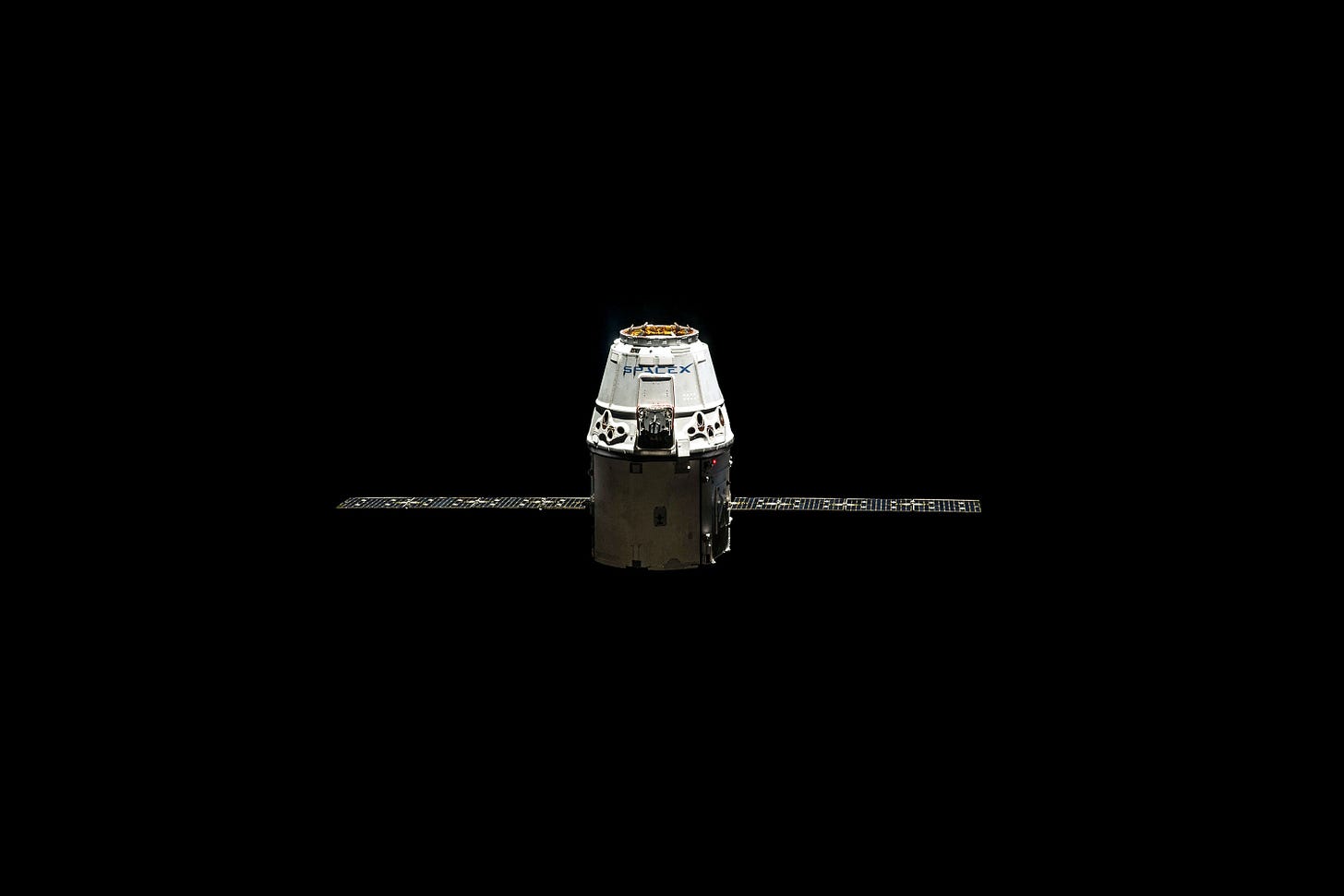Challenges in Space, Fundings: CinnamonAI, Pano, Telexistence
12 July 2023 - A Weekly Publication by New North Ventures
Recent headlines have drawn to the forefront the challenges and risks inherent in operating in the space domain, emphasizing its significance for national security. With SpaceX's Starlink satellites conducting over 25,000 collision-avoidance maneuvers in just six months, the sustainability of satellite operations is under scrutiny. Moreover, the potential consequences of a space war are alarming – the resulting debris could render all remaining satellites unusable within approximately 40 years. In this context, space has become an increasingly important domain that demands our attention.
In this context, a Securing Our Future podcast episode featuring our very own venture partner Susan Kilrain is of increasing relevance. Susan's remarkable background as a naval aviator and astronaut, including being one of only three women to pilot a space shuttle, provides her with unique insights into the complexities of space exploration and security.
During the interview, Susan delves into the topic of space security and the escalating competition in this domain. She explores themes such as the militarization of space, advancements in hypersonic vehicles, and the potential risks associated with the weaponization of space. Susan also emphasizes the significance of debris removal initiatives and their role in preventing the unauthorized removal of satellites.
Her insights shed light on the ever-evolving challenges and opportunities within the realm of space. Listen now to gain a deeper understanding of the complexities surrounding space security and the crucial role it plays in our present and future endeavors.
Founded: 2012
Key People: CEO Miku Hirano
Elevator Pitch: An artificial intelligence-based business platform designed to extend human potential by eliminating repetitive tasks.
Funding: The company raised an undisclosed amount of venture funding from Okamura on July 5, 2023.
Founded: 2017
Key People: Founded by Sonia Kastner
Elevator Pitch: Wildfire detection and intelligence platform intended to quickly mitigate wildfire threats.
Funding: The company raised $17 million of venture funding in a deal led by Valor Equity Partners on July 10, 2023.
Founded: 2017
Key People: CEO Hitoshi Tomioka
Elevator Pitch: Robotic technologies designed to be the systematic innovator of scale in robotics.
Funding: The company raised $170 million of Series B venture funding from KDDI Ventures Program, Airbus Ventures, and SoftBank Group on July 6, 2023.
SpaceX's Starlink satellites have had to perform over 50,000 collision-avoidance maneuvers since the launch of the first spacecraft in 2019.
Concerns are rising due to the exponential growth in collision-avoidance maneuvers, doubling every six months, and the potential impact on long-term satellite operations.
Data shows that Starlink satellites conducted over 25,000 maneuvers in the past six months alone, raising questions about the sustainability of orbital safety.
If the current trend continues, Starlink satellites may need to perform nearly a million maneuvers within six months by 2028, posing significant challenges to orbital management and collision prevention.
If There Were a War in Space, Debris Would Destroy all Remaining Satellites in About 40 Years
Russia's anti-satellite missile test in 2021 created a hazardous cloud of debris, highlighting the risks associated with such tests.
The debris from the test contained over 1,500 trackable fragments larger than 10 cm, along with hundreds of thousands or even millions of smaller pieces, posing a threat to satellites and orbiting spacecraft.
The cascade of collisions resulting from shattered satellites could make Low-Earth Orbit (LEO) unusable within 40 years, as predicted by the Kessler syndrome.
The research article "Star Wars: Anti-Satellite Weapons and Orbital Debris" emphasizes the potential catastrophic consequences and long-lasting effects of anti-satellite tests, urging for restrictions and international cooperation to mitigate the risks.
Space Force Wants Continuously Maneuverable Satellites
The U.S. Space Force aims to deploy sustained satellite maneuver capabilities by 2028 to address the growing space capabilities of China and Russia.
Current space operations rely on positional satellites, which are vulnerable to threats posed by adversaries' capabilities like ground-based lasers, electronic warfare, and cyber-attacks.
The Space Force seeks to transition to dynamic satellites that can operate more dynamically, deter attacks, and respond swiftly to suspicious behavior in space.
The development of sustained maneuver capabilities will enhance national security and support missions in cislunar space, including lunar exploration and congestion management.
Look for a new episode of Securing the Future Podcasts wherever you listen. In our latest episode, we have guest Ross Haleliuk sit down with General Partner Jeremy Hitchcock for an engaging conversation where Ross discusses the cybersecurity space and outlines ways to optimize the industry for a more secure future.



